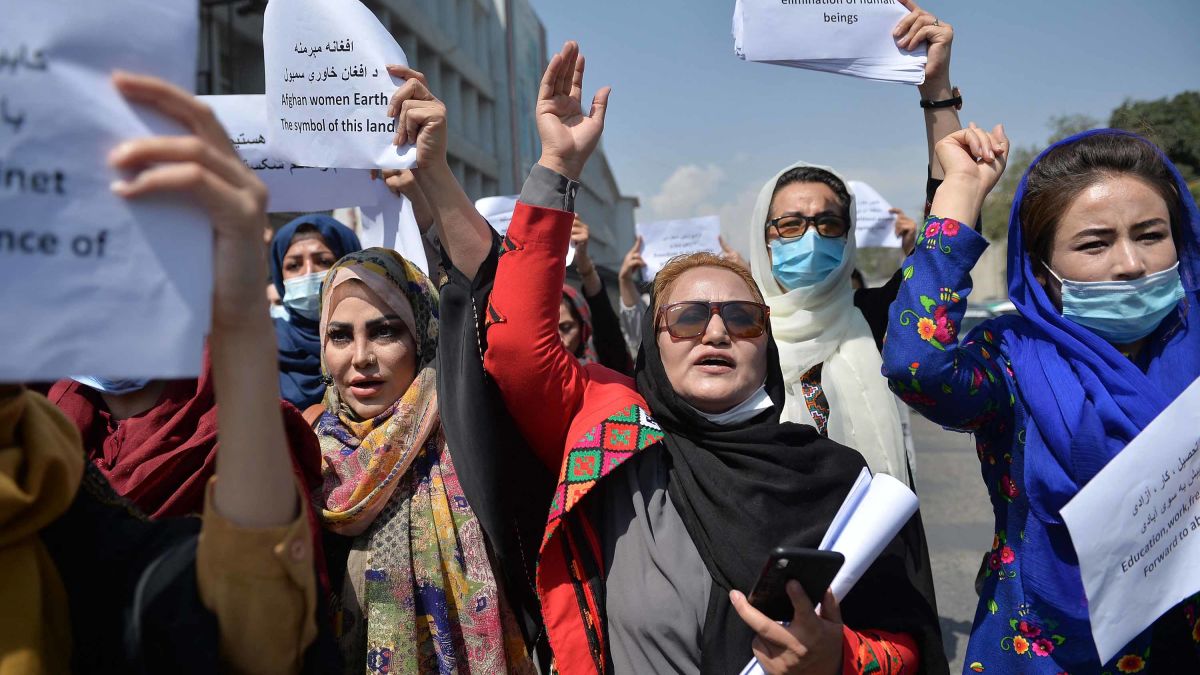In her weekly column Gülseren Onanç argues that there is a need for a feminist foreign policy approach that questions the status quo and the established order, to bring about the changes we dream of.
Gülseren Onanç
The presidency of Bill Clinton (1993 – 2001) in the USA can be regarded as a period in which global women’s empowerment was prioritized in American foreign policy with the influence of two powerful women, Hillary Clinton and Madeleine Albright. We can say that a liberal feminist approach dominated this period of American foreign policy, which supported the meeting of the UN Women’s Conference in Beijing in 1995 and the resulting Beijing Declaration and established relations with global women’s movements. Hillary Clinton, influential as then-presidential wife, and Madeleine Albright, America’s first female secretary of state, continued working closely.
Hillary Clinton, the US Secretary of State during the first term (2009 – 2013) of the Obama administration, established the International Women’s Affairs Department and appointed Melanne Verveer as its head. We had the opportunity to cooperate with Melanne Verveer while I was the president of KAGIDER (Turkish Women Entrepreneurs Association). Melanne Verveer visited Turkey in 2009, 2010 and supported our work.
At that time, the US Department of State had a project called “Supporting Women’s Entrepreneurship in Muslim Countries”, including Turkey. The project coordination was led by Madeleine Albright, an experienced politician on the US side. The coordination in Turkey was undertaken by TOBB (The Union of Chambers and Commodity Exchanges of Turkey). I was among the group invited to the meeting about the project which took place in Istanbul in 2010. I will never forget the high-toned and tense discussion we had with Albright at that meeting.
Rıfat Hisarcıklıoğlu, the president of TOBB, started the introduction and Madeleine Albright presented the project. As far as I remember, TOBB was going to manage the financial support program in Turkey. The project was aimed at increasing women’s entrepreneurship in countries including Egypt, Jordan, Pakistan, Malaysia, along with Turkey.
In the Q&A, I told Albright that I had to remind her of something. I said that Turkey is a secular, democratic social state by virtue of its constitution. I regret to hear from a respected politician like her that Turkey was included in a project titled ‘Muslim Countries’. I also criticised the organisation of this project by working with a men dominated organisation such as TOBB. As you can guess, I managed to piss off both chairs of the meeting. Albright said that we are a country where 90 per cent of the population is Muslim. Hisarcıklıoğlu noted the saying that I “added water to the cooked rice” and that we should concentrate on the benefits of Turkey being involved in such a project.
Foreign Policy and Gender
This memory comes to my mind as I reflect on the consequences of the US decision to end the 20-year occupation abruptly. How the US left Afghanistan once again reminded me of our need for a genuine feminist foreign policy.
The fact that the Minister of Foreign Affairs is a woman does not mean that the foreign policy of that country is feminist. It is not my intention to belittle the support Clinton and Albright gave to the global women’s movement, but I believe that we need a foreign policy approach that questions the status quo and the established order, to bring about the change we dream of. This approach was put forward with the concept of ‘feminist foreign policy‘ by a visionary politician woman, Margot Wallström in Sweden in 2014. The Swedish Ministry of Foreign Affairs declared her country’s foreign policy as a feminist foreign policy in 2014.
Feminist Foreign Policy focuses on four principles: supporting the rights of girls and women; allocating resources to gender equality work; equal representation of all genders and conducting research that is grounded in reality.
To date, there are only 6 countries other than Sweden that have adopted a feminist foreign policy; Canada, France, Spain, Mexico, Luxembourg and Libya. On the other hand, we believe that the USA, EU and Turkey should adopt and implement feminist foreign policy in order to ensure peace and equality in the world.
We, as a platform, recommend Jessica Abrahams’ article “Towards a real feminist foreign policy” published in Prospect. We would like to draw attention to the close relationship between international relations and gender policies.
“Afghan women journalists need support, not saving,” writes Afghan researcher Preethi Nallu for Open Democracy. Feminist foreign policy focuses on “making women’s voices heard” instead of the male-dominated hegemonic foreign policy nowadays that concentrates on “saving” Afghan women from Taliban tyranny. A feminist foreign policy promotes better conditions for women and prioritizes cooperation over oppression, human security over national security. Epidemics that threaten human life and climate change are considered security threats as much as hostile states. Feminist foreign policy claims that a more peaceful, egalitarian and sustainable world can be created for all.
In my article last week, I talked about brave Afghan women who excite me and make me proud. I would like to end this week with the actions of women who took to the streets in Harat, Afghanistan. These women, whose banners read “Do not be afraid, do not be afraid, we are side by side”, do not need a saviour; they need their voices to be heard. They need to be supported in foreign policy.
The whole world needs this, not just them.


